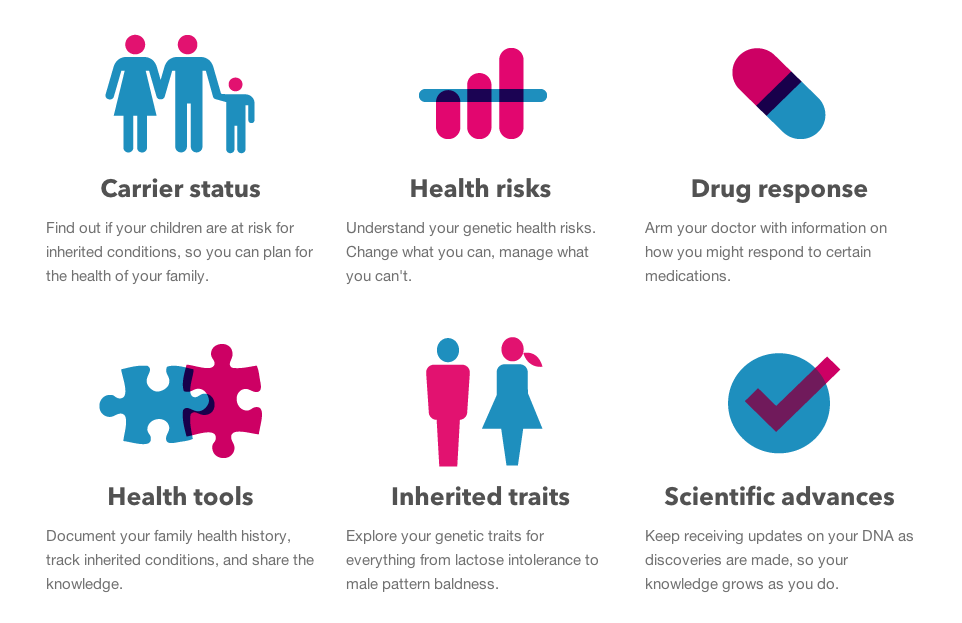FDA Orders Halt To Marketing Of 23andMe DIY Genetic Test Kits

The FDA says that 23andMe’s statements that it can be used for disease diagnosis make it a regulated medical device.
In a letter to Anne Wojcicki, 23andMe CEO and wife of Google co-founder Sergey Brin, the FDA claims the marketing of the 23andMe Saliva Collection Kit and Personal Genome Service is currently in violation of the Federal Food, Drug and Cosmetic Act.
According to the agency, the kit falls under the heading of a regulated medical device under section 201(h) of the FD&C Act, as it is “intended for use in the diagnosis of disease or other conditions, or in the cure, mitigation, treatment, or prevention of disease, in man or other animals.”
The FDA calls out examples from the 23andMe website which state that the kit can be used to provide reports on “254 diseases and conditions,” that it can diagnose whether the user has carrier status for some diseases and conditions, indicate “health risks,” and “drug response” for these conditions. The agency takes particular issue with the claim that the kit is a “first step in prevention” that enables users to “take steps toward mitigating serious diseases” like diabetes, coronary heart disease, and breast cancer.
In the letter, the FDA states that it has repeatedly told 23andMe that the device requires premarket approval in order make a number of the claims in its marketing.
From the letter:
“Some of the uses for which PGS is intended are particularly concerning, such as assessments for BRCA-related genetic risk and drug responses (e.g., warfarin sensitivity, clopidogrel response, and 5-fluorouracil toxicity) because of the potential health consequences that could result from false positive or false negative assessments for high-risk indications such as these. For instance, if the BRCA-related risk assessment for breast or ovarian cancer reports a false positive, it could lead a patient to undergo prophylactic surgery, chemoprevention, intensive screening, or other morbidity-inducing actions, while a false negative could result in a failure to recognize an actual risk that may exist.”
The FDA states that 23andMe did submit applications in 2012 for the agency’s least-harsh medical device review process, but the agency claims that the company failed to provide information subsequently requested by FDA, and thus the applications were considered withdrawn earlier this year.
“To date, 23andMe has failed to provide adequate information to support a determination that the PGS is substantially equivalent to a legally marketed predicate for any of the uses for which you are marketing it,” reads the letter.
The agency says it has been trying to work with 23andMe since 2009 and that it has previously proposed changes to the kit’s labeling that “could mitigate risks and render certain intended uses appropriate for de novo classification.” The FDA also claims that it has provided the company with just about all the feedback and information it would need to bring the product into compliance.
“However, even after these many interactions with 23andMe, we still do not have any assurance that the firm has analytically or clinically validated the PGS for its intended uses, which have expanded from the uses that the firm identified in its submissions,” writes the agency.
The letter, dated Nov. 22, calls for the company to “immediately discontinue marketing the PGS until such time as it receives FDA marketing authorization for the device.”
“We recognize that we have not met the FDA’s expectations regarding timeline and communication regarding our submission,” a rep for the company tells Bloomberg. “Our relationship with the FDA is extremely important to us and we are committed to fully engaging with them to address their concerns.”
As of right now, the 23andMe website still contains the marketing language and statements mentioned in the FDA letter. While the agency called for the immediate halt to marketing of the product, it also gives the company 15 days to tell the FDA what steps it has taken to remedy the problems.
23andMe and others in the DIY genetic test kit business have been under fire from lawmakers and regulators for years, who have been concerned about the potential for errors and mix-ups that could possibly lead users to seek the wrong treatments.
Want more consumer news? Visit our parent organization, Consumer Reports, for the latest on scams, recalls, and other consumer issues.


